Story by Liz Navarro. Photos by Hunter Lacey.
The Agape Clinic waiting room looks very similar to any other medical waiting room. Patients scroll on their phones, fill out forms, and herd their children as they wait in rows of chairs. There’s a mural painted on the wall featuring colorful, happy pets. A small line accumulates at the receptionist’s window as she calls up patients one at a time and answers the ringing phone.
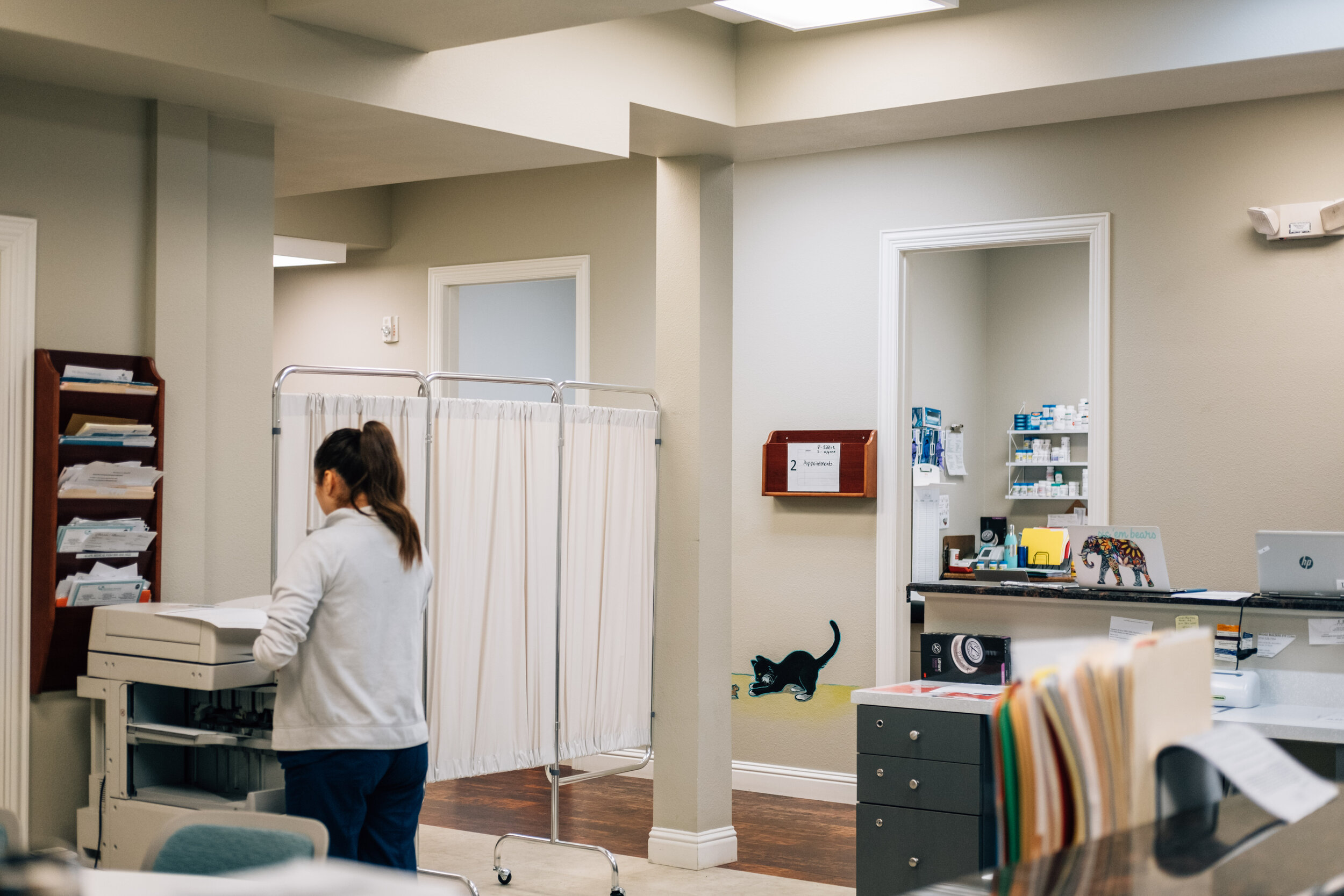
There’s only one difference that separates this waiting room from others, and it would be easy to miss if you weren’t looking for it. It’s a small sign at the reception window with the word “Donations” at the top. The sign exists because the Agape Clinic does not charge patients for any medical or dental services, and does not accept insurance. Patients may donate any amount they can (the clinic recommends $25 to cover costs for a routine visit and $35 for a specialty visit), but will never be turned away for inability to donate.
The Agape Clinic is a nonprofit, charity medical and dental clinic that is funded entirely by independent donations, many from the patients themselves. It offers medical and dental care to absolutely anyone, regardless of zip code, access to insurance, citizenship, or income level.
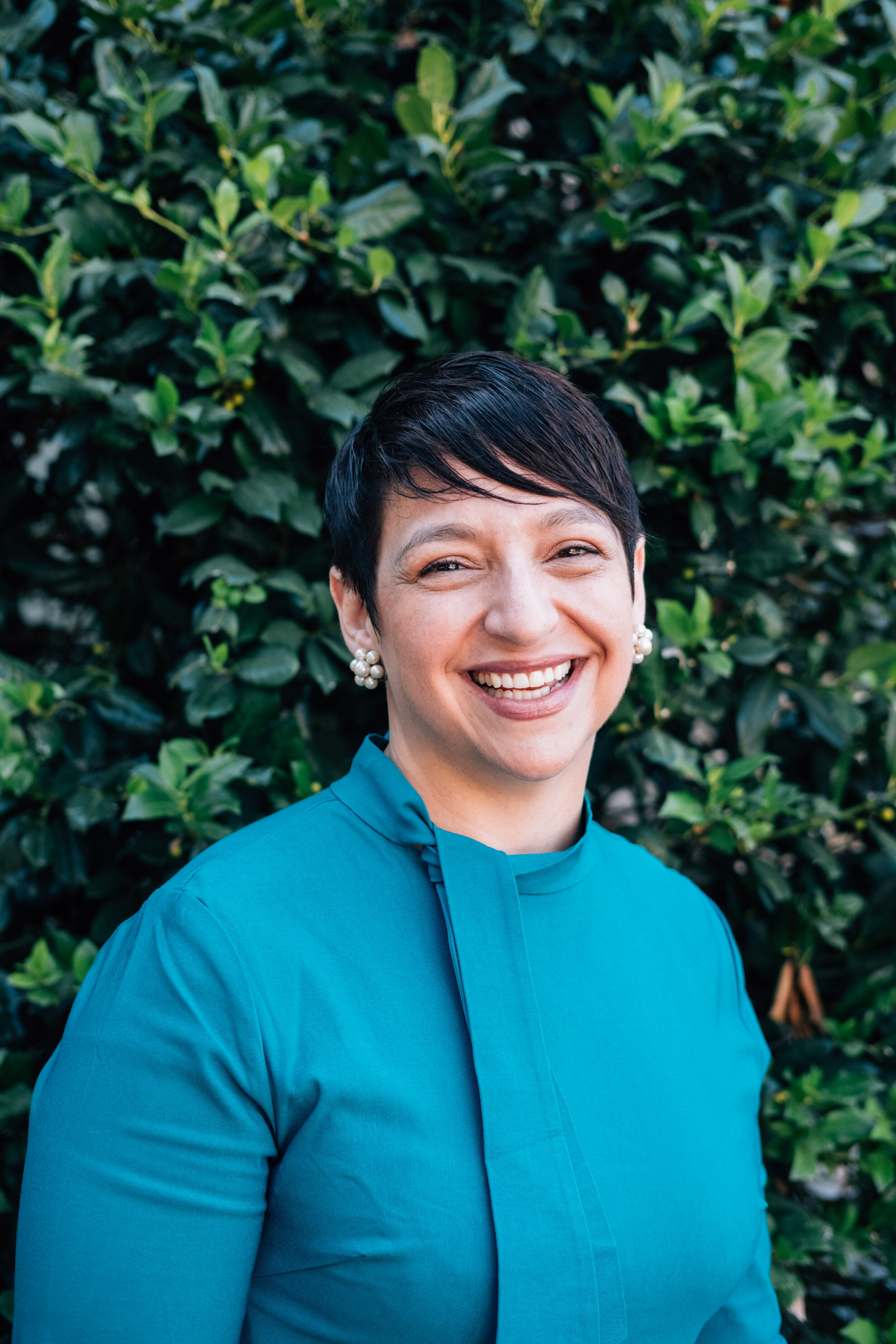
When Stephanie Bohan applied for the executive director job almost 10 years ago and asked Agape founder Dr. Barbara Baxter who her patients were, Dr. Baxter responded with a question: “When people asked Jesus to heal them, did he ask about their zip code?”
Stephanie was intrigued.
A decade later, this is the sentiment that still fuels Stephanie and the entire clinic. Through the waiting room doors and past the dog mural are medical rooms, staffers in scrubs, and the medical teams who attend to patients. A doorway leads to a room that looks like a pantry stacked with prescription medications. The Agape Clinic has a partnership with a Sam’s Club pharmacy so that it can offer affordable prescriptions to patients, many of whom are uninsured and would be otherwise unable to purchase necessary medication to manage chronic illnesses like diabetes.
Before Stephanie’s tenure at Agape, she’d suffered a cancer scare that helped her to understand the reality of the high cost of health care. “I understood the fear of having a health scare. What if I had to deal with the fear of not being able to pay for it?”
When she accepted the executive director position at the Agape Clinic it was operating four half days a week in the basement of Grace United Methodist Church in East Dallas and serving several thousand patient visits per year.
“When I started, I was challenged to find a way to offer medical care in the way that Jesus did, and it scared me to death,” Stephanie shared, as she remembered what Dr. Baxter said to her when they first met. “I thought I would fail, but I honored her wish. When someone asked us for help, we helped them.”
As it turned out, a lot of people needed affordable medical care. Under Stephanie’s leadership, the team grew. The Agape Clinic purchased the building next door and added more medical services and a dental team. Where does that leave them today?
“Our annual budget is under a million dollars in cost,” Stephanie said. “And we will see 18,000 patients this year.”
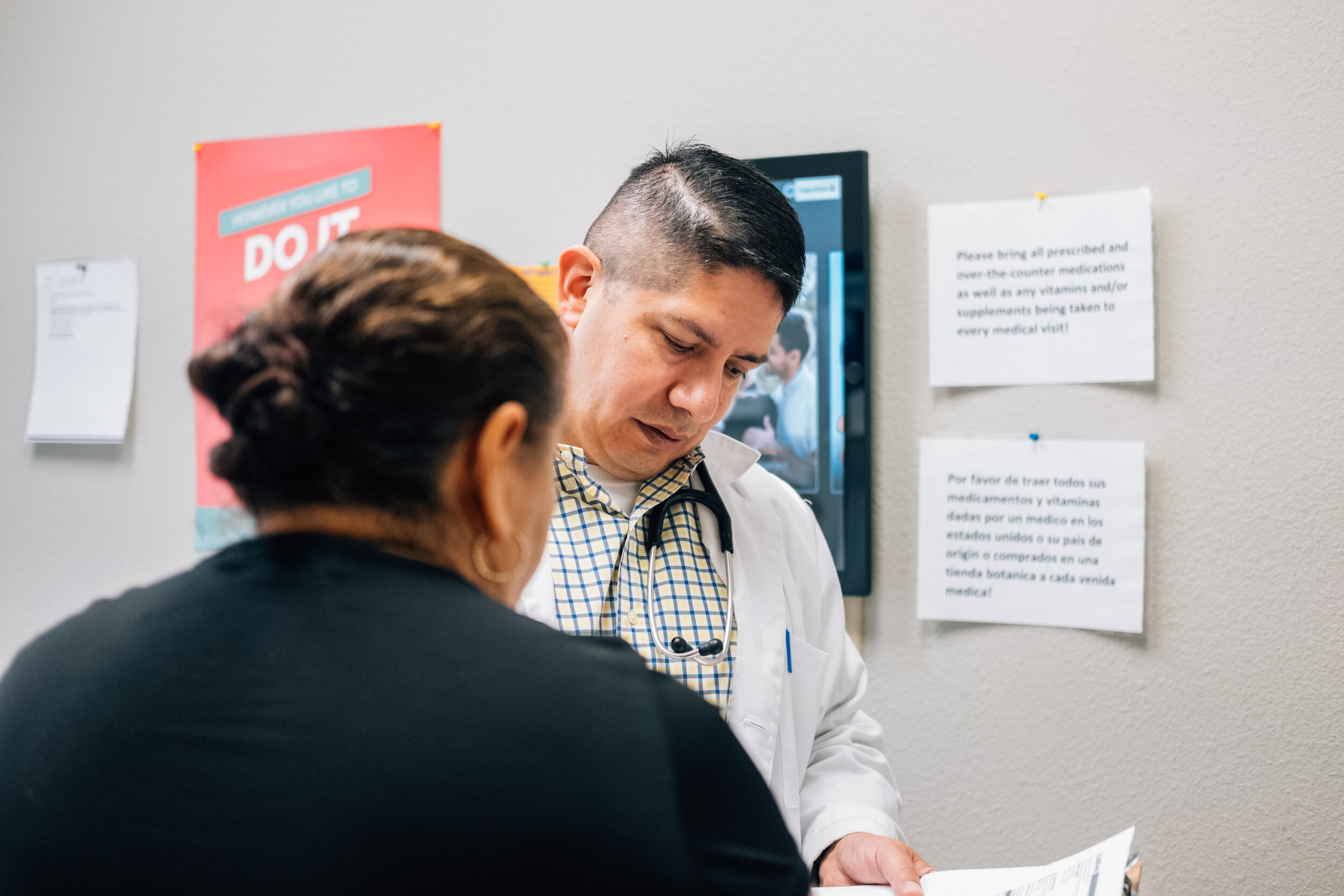
It’s fair to be impressed that the clinic has grown to over 18,000 annual patient visits. It’s also fair to wonder how. Stephanie’s mind operates like a calculator. In their 10 years of scaling Agape together, Stephanie and her team of staff and volunteers have become masterfully efficient with the resources they have–and it’s not often we call any part of our healthcare system “masterfully efficient.” The Agape team understands exactly how much funding, how many people, and how much space they need to offer the highest possible number of patients quality medical care.
There are now two full time medical teams, including doctors, PAs, nurses, translators, and scribes who assist with documentation so that the doctors aren’t overwhelmed with paperwork. Over 100 active volunteers contribute medical services to the clinic, including physicians, dentists, specialists, and medical students.
“I found out quickly that my strengths are as a bringer-togetherer and a capacity builder,” Stephanie shared. It isn’t hard to validate her claim.
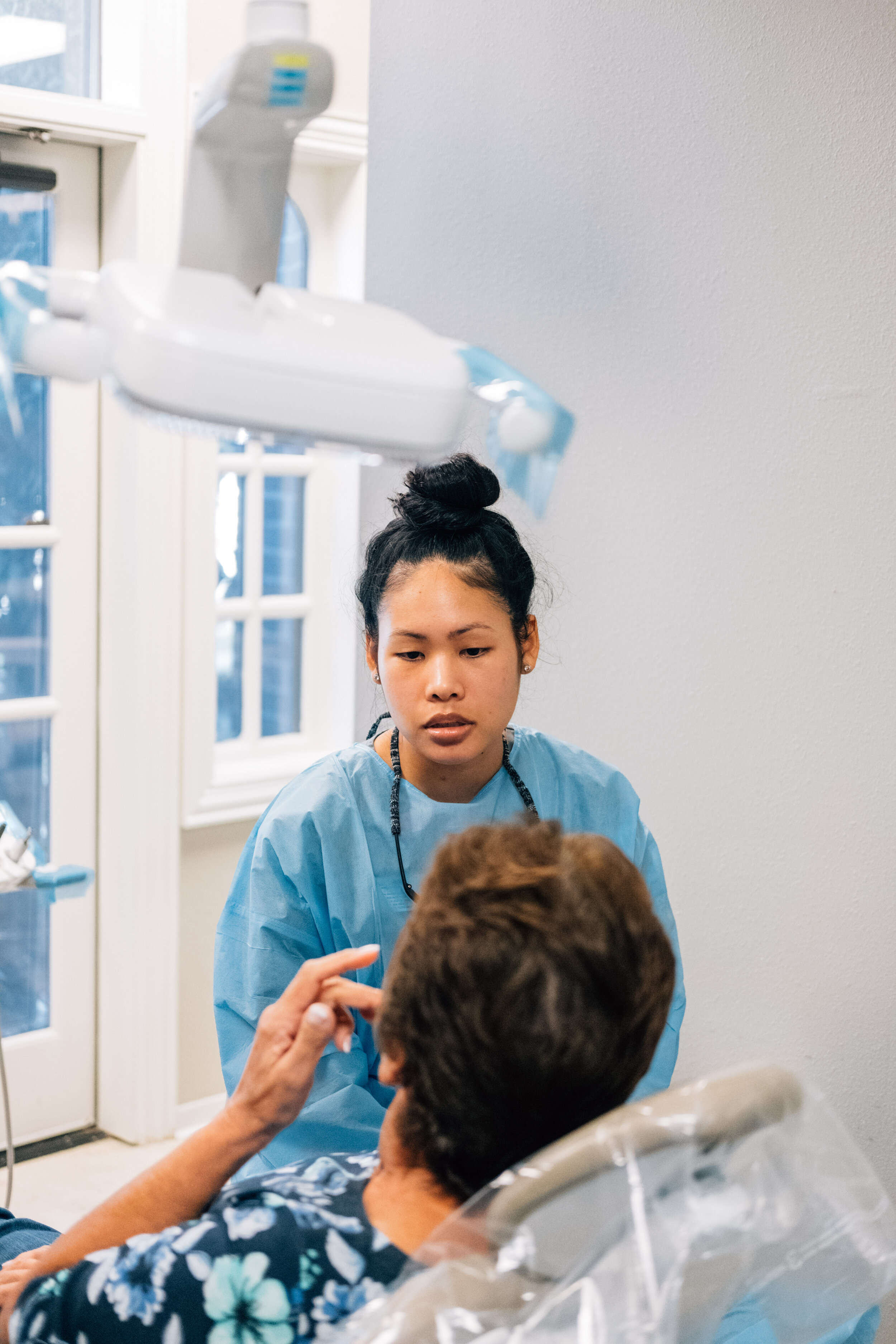
Agape has optimized its capacity by collaborating with teaching institutions like UT Southwestern and Texas A&M College of Dentistry and Medicine. Medical students who need to complete hours practicing their specialties before graduating spend those hours at the Agape Clinic. It’s a win-win for the students and the patients.
“With teaching institutions, we can provide a vibrant learning experience for people who are so underserved that their medical needs are great,” Stephanie explained.
Stephanie has become acutely aware of how great the need is for affordable health care. The Agape Clinic serves patients who are uninsured, underinsured, or lacking access to affordable health care for a number of reasons. Some of the patients are on health insurance plans with such high deductibles that they can’t even afford to use their insurance. Some patients live below the poverty line. Some are unemployed. Some are independent artists or small business owners. She sees refugees seeking asylum, a process that takes years, making it difficult to access employment with insurance until asylum’s been granted. The Agape Clinic has even found a way to reach patients who work in the restaurant industry, as chef restaurant owners are rarely able to offer health benefits to their employees.
We were interrupted at that point by loud coughing. “That patient is asthmatic,” Stephanie explained, pointing toward a patient room. “Did you know an inhaler can cost $350 per month? A person’s medical care can be as much as their rent.”
Stephanie turned to a white board on the opposite wall listing doctors’ names and various specialty areas the clinic offers: dermatology, neurology, gynecology, pediatrics, and others. “Everything in red is booked out through the end of the year,” Stephanie shared (in our September interview). Nearly every category on the board was red.
Because of its relationship with UT Southwestern specialists, the Agape Clinic offers complete dermatological care that can include skin cancer biopsies every Saturday. The clinic is open for walk-in appointments for general medicine on Saturdays as well; specialist appointments like dermatology are by appointment only.
“People show up on Saturday mornings and line up at 4:00 AM,” Stephanie described. “There are chairs and buckets outside our gates where they sit and wait. Sometimes, they have a prescription that we can refill quickly, and we get them an appointment. Sometimes we can’t even see everyone who’s come that day. Many of our walk ins have an urgent issue–pain or swelling, high fevers, heart attacks, blood transfusions. If they’re sick now and need immediate care, we can’t turn them away. And if someone thinks they have skin cancer, they’ll drive 250 miles to come see us.”
Unfortunately, many of the Agape Clinic patients are dealing with urgent medical issues. Preventative health care like annual physicals and routine dental visits aren’t cheap. They can cost thousands of dollars without insurance. When small health issues aren’t detected early in routine check-ups, they grow into major ones.
A few years ago, the clinic received a $25,000 donation for an ultrasound machine. Shortly after, a man came into the clinic who had been having chest pains. He had already gone to the emergency room to find out that his aorta was separating, which could lead to a catastrophic heart attack. The ER instructed him to follow up with his cardiologist, but he couldn’t afford to. He came to Agape instead.
“If you aren’t life-threatening in the moment you’re in the ER, they are likely to send you home,” Stephanie explained. The Agape Clinic medical providers used the new ultrasound machine to monitor the aortic separation every single day until they knew it was big enough that the man could be admitted to the hospital for surgery. “He’s still alive, and he may not have been. Without preventative monitoring, he could have had a major heart attack,” Stephanie said.
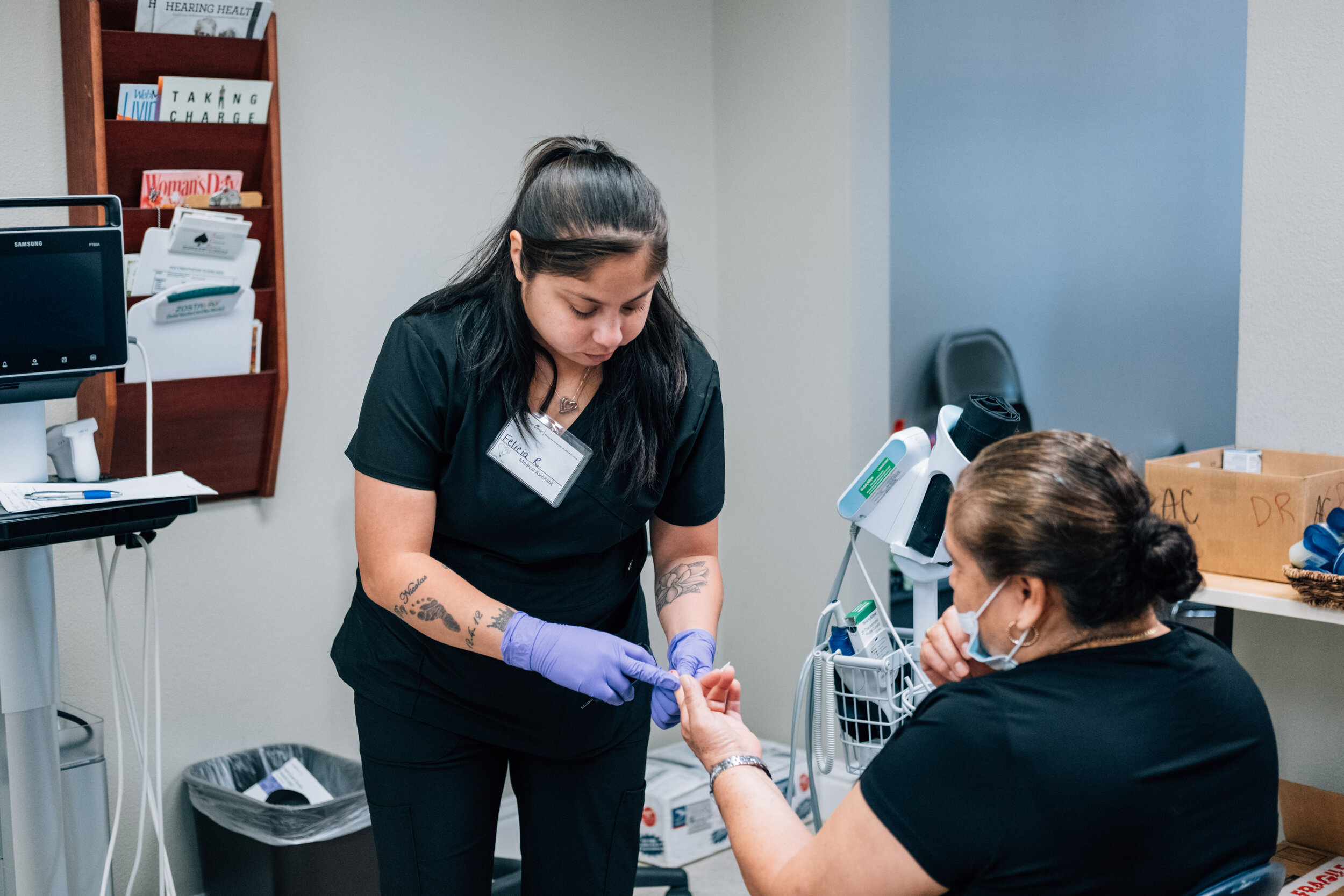
Not long ago, Stephanie borrowed her church’s van and drove to Bonton, an underserved community in South Dallas. The clinic brought saw patients from the neighborhood who had gone years, sometimes decades, without access to routine doctor’s visits. Poverty can pay an extreme toll on the health of a community.
“Every single person we brought in had a diagnosable disease–hypertension, diabetes. None of the four women we saw had had a pap smear in eight years; one had full blown cervical cancer,” Stephanie shared.
“We need to stop treating disease,” Stephanie said. “We need to be preventing disease.”
That’s exactly what she plans to keep doing. She has a vision to expand Agape, and her calculator of a brain has run the numbers. “In my building, $150,000 gives me access to 5,000 patients because I could add an additional team of people,” she said. She’d also like to expand Agape’s mental health services with more counselors.
Stephanie envisions expanding Agape to satellite clinics throughout Dallas. “This is a scalable setting. We have found the least expensive way of offering ongoing health care to healthy people. Clinics like us need to exist to keep people well. If we could provide all of the basic primary care support, our county hospitals could be taking care of people who are really, really sick–those who need surgery or cancer care. They could stop spending time and money on preventative care–or diseases that have grown out of lack of preventative care.”
“It breaks my heart that we’re one of the best kept secrets in Dallas,” Stephanie said, which is why she speaks to groups throughout the city—restaurant workers, churches, neighborhoods—to let them know that healthcare is available to them without insurance.
As our interview ended, Stephanie explained the dog mural on the wall. It’s a tribute to the favorite pets of the dedicated Agape team of staff and and volunteers. “That one is mine,” she pointed to a chunky, peppy little brown dog. “His name is Tubby Love Monster.”
A staffer in scrubs picked up the ringing phone. Turning to Stephanie and said, “There’s a woman in East Texas with high functioning special needs who needs a pap smear, medical, and dental.”
Stephanie glanced over at the white board covered in red marker, the one showing all of the specialties booked out until the end of the year.
“It’s a two hour drive for them,” said the woman holding the phone, as she looked at a grid on her computer screen trying to find the space for an appointment.
As much as the Agape Clinic has grown in the past 10 years, the phone hasn’t stopped ringing and the line hasn’t stopped accumulating in the parking lot on Saturday mornings. As long as healthcare costs remain high, Agape will be working to fill in the gap for people without basic access to their medical needs.
“We’ll fit her in,” Stephanie responded, true to her initial promise to Agape Founder, Dr. Baxter. And with that, one more person who needed it found access to affordable healthcare.
If you know someone who is Doing Good in Dallas, we’d love to hear about it! Share their story with us.